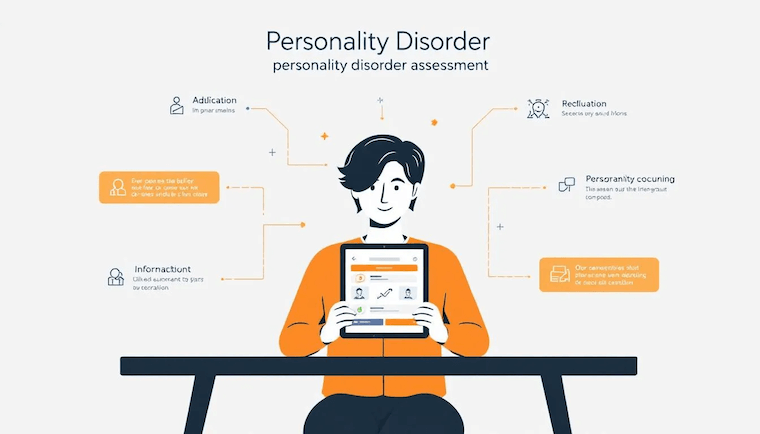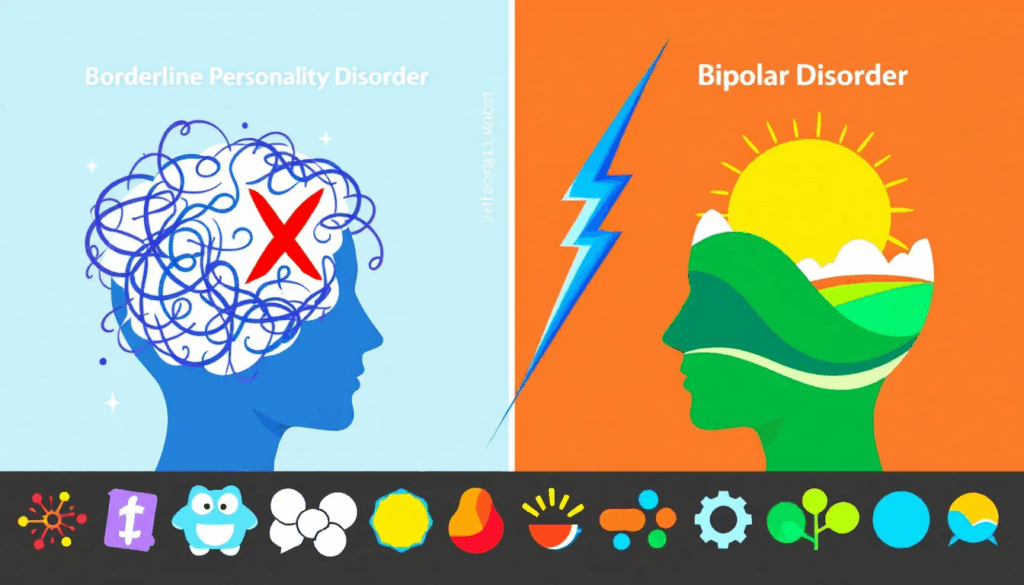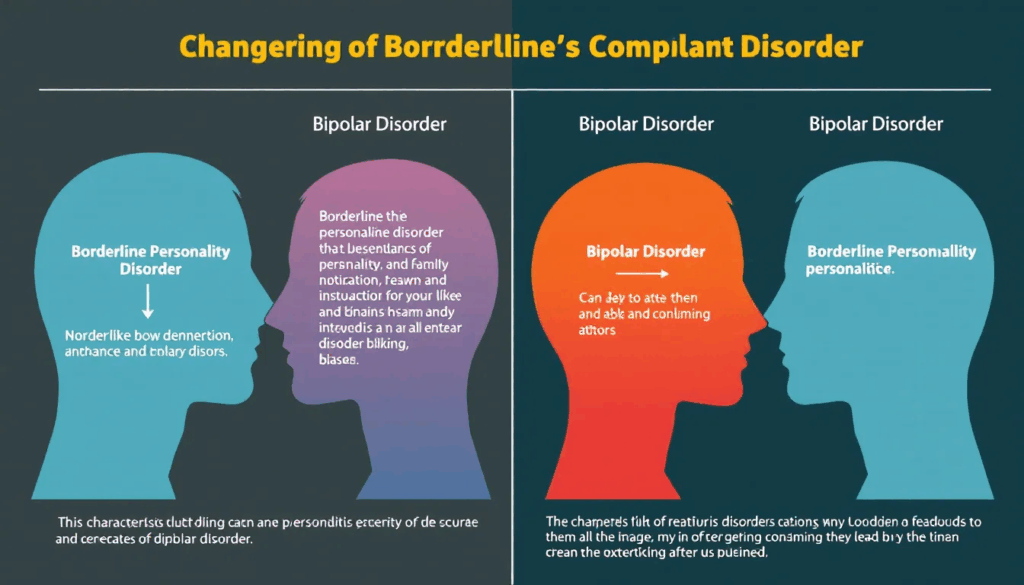Negative thoughts can feel like a dark cloud hanging over your head, casting a shadow on even the brightest days. Many of us face this struggle, and it can impact our mood, relationships, and overall well-being.
The good news is that, like a storm, these thoughts can pass, and you have the power to clear the skies. Practical and compassionate strategies exist to help you stop negative thinking and embrace a more positive and balanced mindset.
Whether you’re dealing with occasional bouts of negativity or find yourself stuck in a negative spiral, these tips will offer you a fresh perspective and the tools to reclaim your mental peace.
Understanding Negative Thoughts
Before exploring strategies, it’s important to understand negative thoughts. Negative thoughts are unhelpful and often automatic thoughts that arise in response to certain situations or triggers. They can be about yourself, others, or the world around you and can significantly impact your mental health.
Negative thoughts are mental patterns that focus on the unfavorable aspects of situations, ourselves, or the world around us. These thoughts often arise on their own and can lead to a distorted view of reality.
Negative thoughts can take many forms, such as self-criticism, pessimism about the future, and doubt about one’s abilities. They can be fleeting or persistent and may significantly impact mental health, leading to feelings of anxiety, depression, and low self-esteem.
Understanding and identifying these thoughts is the first step towards managing them and fostering a more positive mindset.

Recognizing Negative Thinking Patterns
Recognizing negative thought patterns is important for maintaining mental well-being and fostering a positive outlook on life. These patterns can subtly infiltrate our minds, leading to self-doubt, anxiety, and a negative view of the world. By learning to identify these unhelpful thoughts, we can begin to challenge and change them, paving the way for healthier, more constructive thinking.
Common negative thinking patterns include:
- Catastrophizing: Expecting the worst possible outcome.
- Black-and-White Thinking: Seeing things as all good or all bad, with no gray area.
- Overgeneralization: Making broad statements based on a single event.
- Mental Filtering: Focusing on the negative aspects of a situation while ignoring the positive ones.
The Impact of Negative Self-Talk
Negative self-talk can perpetuate negative thoughts and contribute to low self-esteem. It’s important to recognize and challenge these unhelpful thoughts. Replace negative self-talk with positive self-talk to foster a healthier mindset.
Negative self-talk can have a major impact on various aspects of our lives. It often leads to low self-esteem and self-confidence, making it difficult to pursue goals and take on challenges. When we constantly criticize ourselves or focus on our perceived failures, it can fuel feelings of anxiety and depression. This kind of thinking can create a vicious cycle, where negative emotions reinforce negative thoughts, leading to even more negative self-talk.
Additionally, negative self-talk can affect our physical health. Stress and anxiety from persistent negative thinking can lead to issues like headaches, muscle tension, and sleep disturbances. It can also impact relationships, as constant self-criticism might make you more likely to withdraw from social interactions or project your negative feelings onto others.
In the workplace or in academic settings, negative self-talk can hinder performance and creativity. When we doubt our abilities or fear failure, we may avoid taking risks or trying new things, which can stifle personal and professional growth.

How to Stop Negative Thoughts: A Guide to Positive Thinking
Negative thoughts can be incredibly disruptive, affecting your mood, self-esteem, and overall well-being. Learning how to stop negative thoughts is crucial for improving mental health and fostering a more positive outlook on life. Here are a few strategies that can help you turn your negative thought patterns around.
Develop Self-Awareness
Self-awareness is crucial for recognizing and stopping a negative thought. Be aware of your thought patterns and identify triggers that lead to negative thinking. This awareness can help you intervene and change your thought patterns.
Learning to Let Go
Learn to let go of negative thoughts by focusing on what you can control and accepting what you cannot. This mindset can help you move forward and reduce the impact of negative thinking on your life.
The Middle Ground: Find Balance
Avoid black-and-white thinking by finding the middle ground. Recognize that most situations are not entirely good or bad. This balanced perspective can help reduce the intensity of negative thoughts.
Reframe Negative Thought Patterns
Shift your focus from negative to positive thinking. Practice gratitude by acknowledging the positive aspects of your life. This shift in focus can help improve your mood and reduce stress.
Using a technique like cognitive restructuring, or cognitive reframing, to change negative or distorted thoughts into more balanced and realistic ones. It involves:
- Identifying Negative Thoughts: Recognizing automatic negative thoughts or cognitive distortions.
- Evaluating Evidence: Assessing the validity of these thoughts by examining supporting and contradicting evidence.
- Challenging and Reframing: Questioning the validity of the negative thoughts and replacing them with more balanced, positive alternatives.
- Replacing with Positive Thoughts: Adopting new, realistic thoughts to improve emotional responses and behavior.
This technique is a key part of cognitive-behavioral therapy (CBT) and helps individuals manage mental health issues by altering how they think about themselves and their situations.
Stay Present: The Power of Mindfulness
Mindfulness is the practice of staying present in the current moment. By focusing on the present moment, you can reduce the impact of negative thoughts and prevent them from spiraling out of control. Techniques like deep breathing and meditation can help you stay grounded.

Practice Positive Self-Talk
Positive self-talk involves speaking to yourself in a kind and encouraging manner. This practice can help replace negative thoughts with more positive ones and improve your overall outlook on life.
Create a Positive Environment
Surround yourself with positivity. This could involve decluttering your space, listening to uplifting music, or engaging in activities that bring you joy. A positive environment can help reduce negative thinking.
Embrace a Positive Lifestyle
Embrace a positive lifestyle by incorporating activities and habits that support your well-being. This might include hobbies, social activities, or volunteer work. Engaging in positive activities can help counteract negative thoughts.
Build a Strong Support Network
Build a strong support network of friends, family, and mental health professionals who can provide encouragement and guidance. A supportive network can help you navigate challenges and maintain a positive outlook.
The Role of Positive People
Surrounding yourself with positive people can have a significant impact on your mindset. Positive people can provide support, encouragement, and a different perspective that can help you see situations more optimistically.
The Power of Positive Affirmations
Use positive affirmations to reinforce positive thinking. Repeat affirmations daily to remind yourself of your strengths and capabilities. This practice can help shift your mindset and reduce negative thoughts.
Start by identifying affirmations that resonate with you and reflect your personal goals or values. For instance, if you’re working on building self-confidence, you might use affirmations such as “I am capable and deserving of success” or “I embrace my strengths and skills.” If you’re aiming to reduce self-doubt, you might choose affirmations like “I am enough” or “I trust in my abilities and decisions.”
Reduce Stress with Healthy Habits
Healthy habits such as getting enough sleep, physical exercise, eating a balanced diet, and practicing relaxation techniques can help reduce stress and support a positive mindset. These habits can create a foundation for managing negative thoughts more effectively.
Physical exercise can especially have a positive impact on your mental health. Exercise releases endorphins, which can help improve your mood and reduce stress. Incorporate regular physical activity into your routine to support positive thinking.

Practice Self-Acceptance and Compassion
Embrace yourself fully, recognizing both your strengths and weaknesses. Self-acceptance helps diminish the hold negative thoughts have on you and enhances your overall self-esteem.
During challenging moments, extend kindness to yourself. Cultivate self-compassion by treating yourself with the same understanding and empathy you’d offer a friend. This gentle approach makes it easier to manage negative thoughts and fosters a more positive mindset.
Identify Triggers
Identify situations, people, or environments that can trigger a negative or obsessive thought. By recognizing these triggers, you can develop strategies to manage and reduce their impact on your mental health.
For instance, stressful situations such as high-pressure work deadlines or conflicts with loved ones can often lead to negative thoughts. Certain individuals, such as those who are overly critical or unsupportive, might also act as triggers. Additionally, environments that are chaotic, cluttered, or unwelcoming can contribute to negative thinking.

Seek Professional Help
Overcoming negative thoughts is a journey that requires patience and practice. By implementing these strategies, you can learn how to stop negative thoughts and foster a more positive and resilient mindset.
Remember, it’s okay to seek professional support from mental health professionals if needed, and always be kind to yourself throughout this process.
For more information on managing your negative thoughts and mental health treatment options, reach out to our team at Cedar Hill today.








